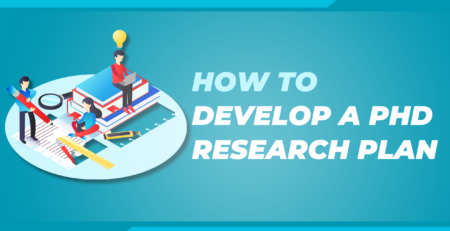21May

Pursuing a PhD is one of the most significant academic journeys a person can undertake. It’s a path filled with intellectual discovery, deep specialization, and personal growth. But pursuing a PhD is also one of the most demanding challenges — both mentally and emotionally. For anyone considering pursuing a PhD, it’s essential to understand not just the potential rewards but also the obstacles that come along the way. In this comprehensive blog post, we’ll explore the key benefits and challenges of pursuing a PhD, and help you decide whether this advanced academic pursuit aligns with your goals.

A Doctor of Philosophy (PhD) is the highest academic degree awarded by universities. Unlike undergraduate or master’s degrees, a PhD involves conducting original research that contributes new knowledge or insights to a particular field. It typically takes anywhere from 3 to 6 years or more, depending on the country, subject area, and individual progress.
PhD candidates often specialize in fields ranging from science and engineering to humanities and social sciences. The journey includes coursework (in some programs), comprehensive exams, proposal defenses, and the development of a dissertation or thesis.
One of the most obvious advantages of a PhD is the opportunity to become an expert in a niche area of study. You spend years diving deeply into your subject, gaining a level of mastery that few others have.
For many professions, particularly in academia and research-based industries, a PhD is a requirement.
Pursuing a PhD demands discipline, resilience, and critical thinking.
These skills are transferable and valued in both academic and non-academic careers.
During your PhD, you often get opportunities to work with:
These relationships can lead to collaborations, job opportunities, and a stronger professional network.
For many scholars, one of the most fulfilling aspects of a PhD is the chance to contribute meaningfully to society through research.
A PhD is a respected qualification that signifies intellectual rigor and achievement. It can enhance your credibility and visibility in professional settings.
Despite the many benefits, a PhD is not without its difficulties. Many students begin the journey with enthusiasm, only to find it more mentally and emotionally taxing than expected.
A PhD typically takes 3 to 6 years (and sometimes more). This is a long-term commitment that can delay financial independence, especially if you are working part-time or living on a stipend.
The pressure to publish, meet deadlines, and maintain academic standards can lead to stress, anxiety, and even depression.
Unlike undergraduate or master’s programs, a PhD often lacks a clear structure, especially after the initial coursework.
Securing scholarships, assistantships, or research funding is often a major hurdle.
While many enter PhD programs with dreams of becoming professors, tenure-track academic positions are increasingly scarce.
The solitary nature of research can make PhD life lonely, especially if you lack a strong support network.
If you decide to pursue a PhD, here are some tips to navigate the challenges:
Pursuing a PhD is a journey that tests your intellect, patience, and perseverance. It offers unmatched opportunities for personal and professional growth, but it also demands a high level of commitment and resilience. Whether you’re driven by a passion for research, a desire to solve real-world problems, or the dream of an academic career, pursuing a PhD means understanding the full scope of both the benefits and challenges. With the right preparation and mindset, pursuing a PhD can be one of the most rewarding adventures of your life.
Kenfra Research understands the challenges faced by PhD scholars and offers tailored solutions to support your academic goals. From topic selection to advanced plagiarism checking.
TSPSC AEE Result 2024 declared at tspsc.gov.in, direct link to download Telangana State Public Service Commission (TSPSC):The Telangana State Public Service... read more

Embarking on a PhD journey is an exciting and challenging experience. One of the first and most critical steps... read more

Starting a PhD is a big academic decision. Many students feel excited, but also confused about the process. Questions like... read more
Conquer Your PhD Journey: Thesis Synopsis Writing Assistance in Chennai & Bangalore. Are you a PhD scholar in Chennai or... read more

Choosing the right methodology for your PhD thesis is a critical decision that can determine the success of your... read more

Publishing in IEEE journals is a significant milestone for engineering scholars seeking global recognition, academic credibility, and the opportunity to... read more

When crafting your thesis or dissertation, writing the methodology chapter is one of the most crucial steps. This chapter explains... read more

Pursuing a PhD is a monumental journey that requires not only intellectual rigor but also strategic planning and adaptability. In... read more
WhatsApp us
Leave a Reply